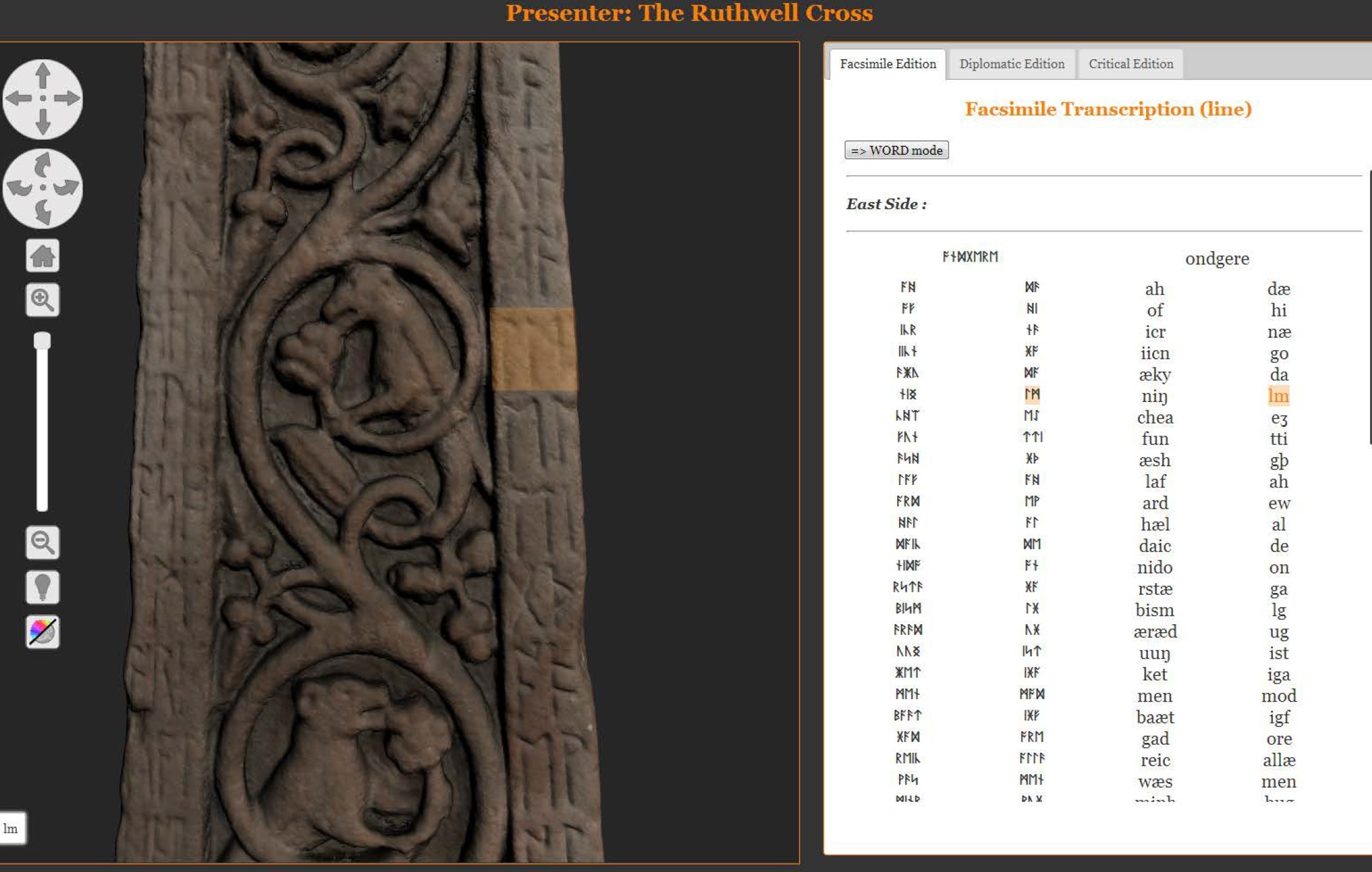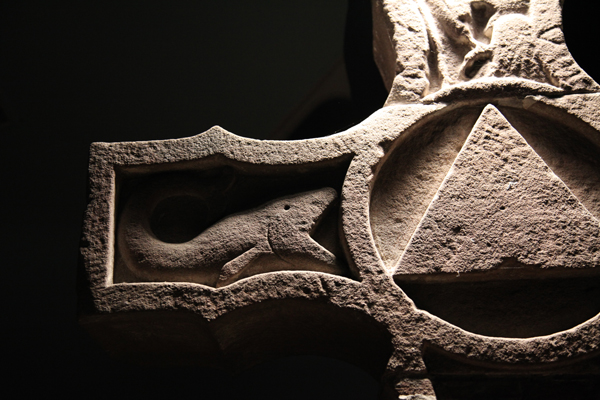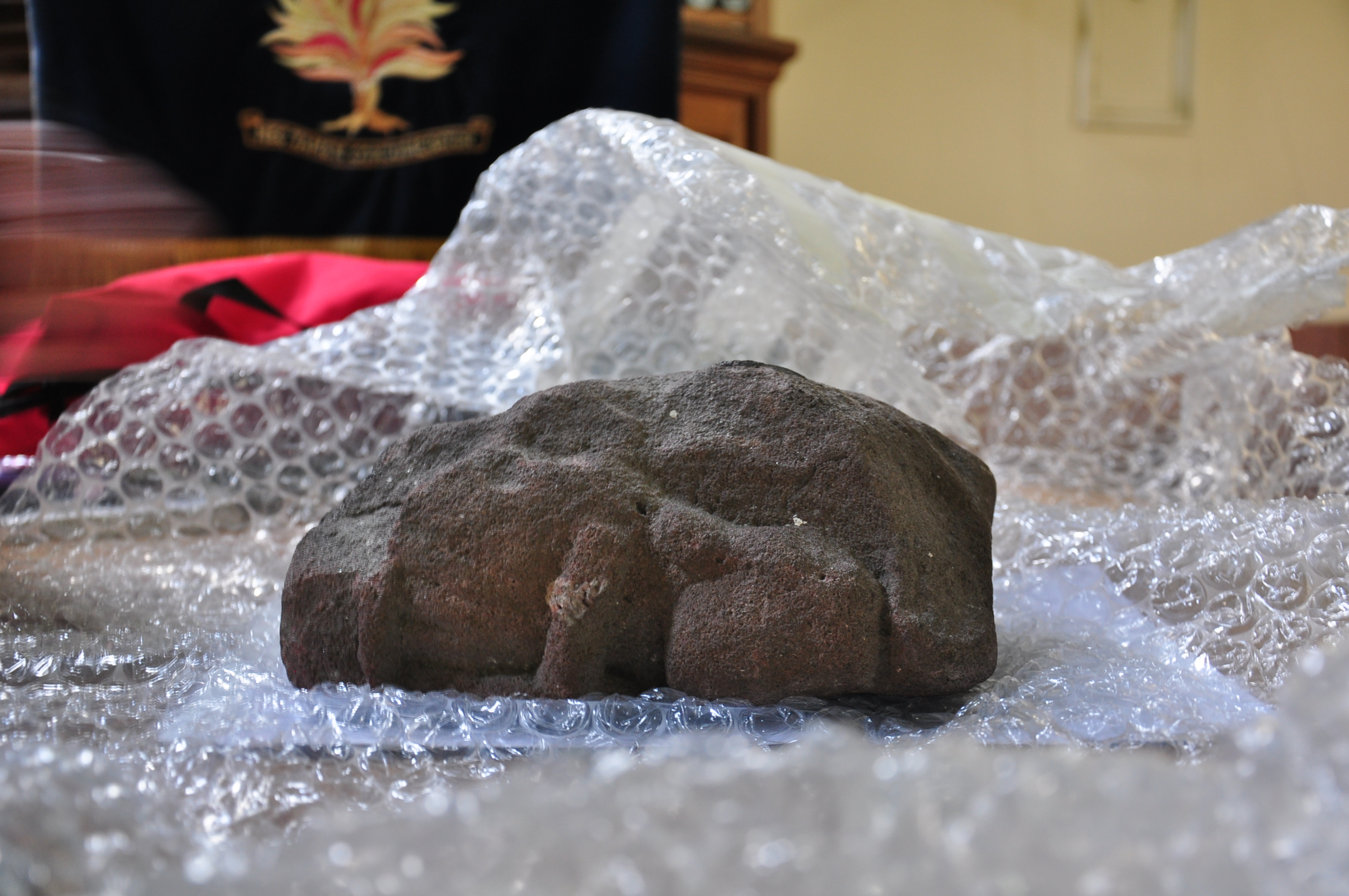The Visionary Cross Project
Research Assistant
The Visionary Cross Project is a long-running digital humanities initiative focused on the preservation and interpretation of key medieval artifacts associated with the Visionary Cross tradition. These include the Ruthwell Cross, Bewcastle Cross, and Brussels Cross—monuments of great linguistic and cultural value due to their Old English and Runic inscriptions. The project is currently under the leadership of Dr. Daniel Paul O’Donnell (University of Lethbridge) and Dr. Roberto Rosselli Del Turco (University of Torino).
As part of an undergraduate independent study in fall 2024, I contributed to the project’s goal of building the framework for the digital edition. My work began with assessing streaming options for 3D models. Then I first created Version 1.0, a functional four-page site with a consistent layout: images of the crosses on the left and textual commentary on the right. Clicking the images opened the 3D models. While effective as a proof of concept, this version exposed structural limitations in terms of navigation, scalability, and long-term maintainability.
In response, I designed Version 2.0, which introduced a modular site architecture modeled on established digital editions. Each monument received its own directory, supported by a dedicated “Frontmatter” section for introductory materials. I experimented with JavaScript-based shared headers and footers to simplify updates, but browser security restrictions pointed to the need for a more robust backend.
During Summer 2025, I received a $6,000 Chinook Research Grant to continue developing the edition. I launched Version 3.0, which takes the previous versions and improves the layout and aesthetics. Additionally, I explored options for long-term 3D model hosting, including integration with the Archaeology Data Service (ADS) and decimated versions for GitHub hosting, navigating file size restrictions and licensing concerns. Future plans include reintroducing interactive functionality similar to the 2015 Ruthwell Edition, enabling 3D models and textual annotations to dynamically respond to user input.
In June 2025, I presented this work at the Congress of The Canadian Society for Digital Humanities (CSDH) conference in a paper on 3D digital editions.



</div>